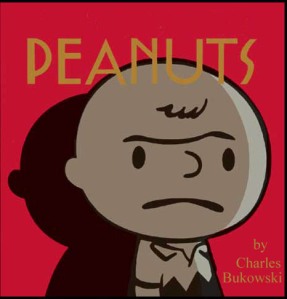 Recently, Amazon announced the formation of Amazon Studios, a new arm of Amazon that will solicit submissions for film and screenplays. Amazon Studios may produce these projects as feature films through a “first-look” agreement with Warner Bros. Pictures.
Recently, Amazon announced the formation of Amazon Studios, a new arm of Amazon that will solicit submissions for film and screenplays. Amazon Studios may produce these projects as feature films through a “first-look” agreement with Warner Bros. Pictures.
Response to this information in the screenwriting and film-making community has been histrionic. Many prominent industry bloggers, having read the fine print, think that Amazon’s 18-month free exclusive option on the film or screenplay is like indentured servitude. They’re freaking out about the “crowdsourcing” of the screenplays, which will encourage anyone to make a script better without the original author’s consent, in exchange for half the payday or more. And they are correct.
Yes, the terms are unlikely to make you rich. Yes, Amazon seems not to care about author’s rights, or intellectual property, or anything the Writers Guild of America has ever tried to fight for.
So what?
This is an open casting call for anyone who has ever tried to write a screenplay. Most of the scripts submitted using this process are going to be terrible. Typically, those who have the ability to make money writing movies are actually making money writing movies. So Amazon is banking on the few writers out there who can tell a coherent story in 110 pages, and hoping that the lure of a $200,000 payday is enough to lure a story worth producing. That’s fair. That’s more than fair.
America is built on exploiting people. We started doing it the moment the first sucker from the Wampanoag tribe decided to teach the Pilgrims how not to starve, and we’ve been doing it ever since. Without exploitation, you wouldn’t have the cities of San Francisco, built on the dreams of people seeking California gold, or Seattle, based on the dreams of people seeking Alaskan gold. Without exploitation, we wouldn’t have railroads, cheap clothes, or reality television.
This is not exploiting people. This is taking a new approach to the insular world of filmmaking and placing a bet that someone can tell a story just as well. Most of these stories will be terrible, but can they be worse than Land of the Lost or Year One?
Sure, Amazon Studios isn’t paying WGA minimum, and they’re disrespecting the author by letting anyone improve on their work. But they’re giving writers and filmmakers a shot they wouldn’t have had otherwise.
If you really want to do the hard work to become a screenwriter, write a great script and find an agent. If you really want to do the hard work to become a director, make a film. Nobody’s stopping you. You can make one from your phone, if you want.
But if you want a free and easy way to get your ideas in front of people who might like them, and you’re not going to quit your job and go to Los Angeles to make it happen, then this is a gift. Six months from now, when the Amazon hype machine makes some writer’s dreams come true, you have no right to be envious. And when the walls of Hollywood continue to erode — and they are absolutely eroding — then Amazon Studios may someday be one of the defining moments in leveling the playing field. They’ll be the guys who recognized there were a nation of people who had gold in their eyes, and they decided to put up a storefront to start selling pickaxes.
Filed under: Uncategorized










 This amuses us.
This amuses us. Pinch Media Data Shows The Average Shelf Life Of An iPhone App Is Less Than 30 Days
Pinch Media Data Shows The Average Shelf Life Of An iPhone App Is Less Than 30 Days





